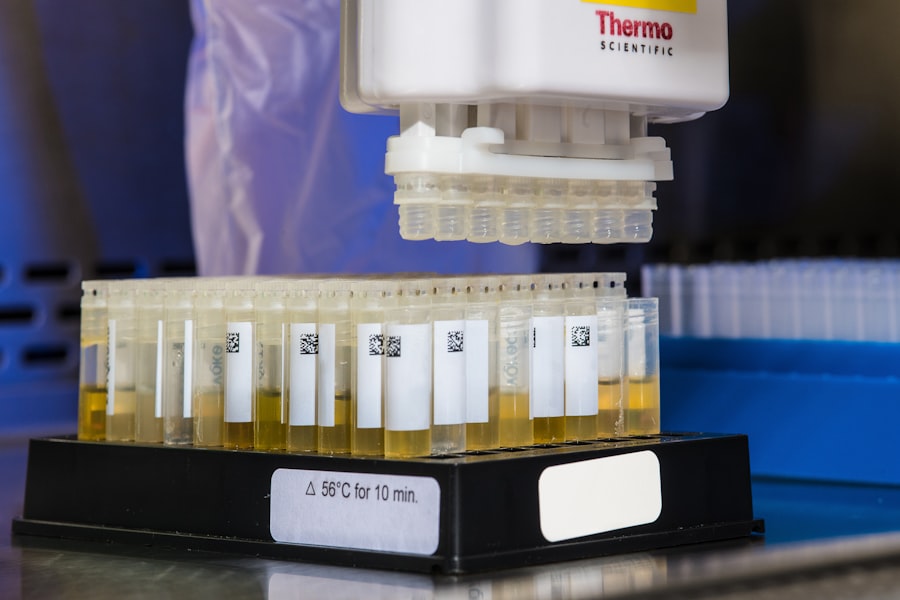In recent years, the landscape of cancer treatment has undergone a significant transformation, driven by advancements in medical research and technology. Among the most promising developments is a new cancer treatment that harnesses the power of immunotherapy, targeted therapies, and personalized medicine. This innovative approach aims to enhance the body’s natural defenses against cancer cells while minimizing damage to healthy tissues.
Unlike traditional treatments such as chemotherapy and radiation, which often come with debilitating side effects, this new treatment paradigm seeks to provide more effective and less harmful options for patients battling various forms of cancer. The emergence of this new treatment is not merely a result of serendipity; it is the culmination of decades of rigorous research and clinical trials. Scientists have been exploring the intricate mechanisms of cancer biology, identifying specific genetic mutations and pathways that drive tumor growth.
By targeting these unique characteristics, researchers have developed therapies that can more precisely attack cancer cells while sparing normal cells. This shift towards a more tailored approach represents a significant leap forward in oncology, offering hope to patients who previously faced limited options.
ClinicalTrials.gov serves as a vital resource in the realm of medical research, particularly in the field of oncology. Established by the National Institutes of Health (NIH) in 2000, this online database provides comprehensive information about publicly and privately funded clinical studies conducted around the world. It serves as a centralized platform where researchers can register their trials, and patients can find opportunities to participate in cutting-edge studies.
The database includes details such as study objectives, eligibility criteria, locations, and contact information, making it an invaluable tool for both researchers and patients alike. The role of ClinicalTrials.gov extends beyond mere information dissemination; it fosters transparency and accountability in clinical research. By requiring researchers to register their trials and report results, the platform helps ensure that findings are accessible to the public and the scientific community.
This transparency is crucial in oncology, where the stakes are high, and patients often seek out experimental treatments as a last resort. Moreover, ClinicalTrials.gov facilitates collaboration among researchers by providing insights into ongoing studies, thereby promoting a more cohesive approach to tackling cancer.
Key Takeaways
- The new cancer treatment shows promising results in recent clinical trials.
- ClinicalTrials.gov plays a crucial role in tracking and sharing cancer research progress.
- Patients report varied experiences, highlighting both benefits and potential risks.
- Future developments aim to enhance treatment efficacy and accessibility.
- Implementation challenges include managing side effects and ensuring widespread adoption.
Promising Results from Clinical Trials for the New Cancer Treatment
Recent clinical trials investigating the new cancer treatment have yielded promising results that could reshape the future of oncology. In one notable study involving patients with advanced melanoma, researchers found that a combination of immunotherapy agents led to a significant increase in overall survival rates compared to traditional therapies. The trial demonstrated that patients receiving this novel treatment experienced not only longer survival but also improved quality of life, with fewer adverse effects reported.
These findings underscore the potential of this new approach to provide more effective options for patients facing aggressive cancers. Another trial focused on breast cancer patients with specific genetic mutations revealed similarly encouraging outcomes. By utilizing targeted therapies designed to inhibit the growth of tumors driven by these mutations, researchers observed a marked reduction in tumor size among participants.
The results indicated that a substantial percentage of patients achieved complete or partial responses to the treatment, suggesting that personalized approaches could lead to more successful interventions. Such findings highlight the importance of ongoing research and clinical trials in identifying effective strategies for managing various cancer types.
Potential Benefits and Risks of the New Cancer Treatment

While the new cancer treatment offers numerous potential benefits, it is essential to consider the associated risks as well. One of the primary advantages is its ability to target cancer cells more precisely, which can lead to fewer side effects compared to conventional therapies. Patients often report experiencing less nausea, fatigue, and hair loss when undergoing this innovative treatment regimen.
Additionally, the personalized nature of these therapies means that they can be tailored to individual patients based on their unique genetic profiles, potentially increasing efficacy and reducing unnecessary exposure to ineffective treatments. However, like any medical intervention, this new treatment is not without its risks. Some patients may experience immune-related adverse events due to the activation of their immune systems against not only cancer cells but also healthy tissues.
These side effects can range from mild symptoms such as skin rashes to more severe complications affecting organs like the lungs or liver. Furthermore, the long-term effects of these treatments are still being studied, raising questions about their safety over extended periods. As researchers continue to gather data from ongoing trials, it is crucial for healthcare providers to weigh these benefits against potential risks when recommending this new treatment to patients.
Patient Perspectives and Experiences with the New Cancer Treatment
| Metric | Description | Value | Unit | Source |
|---|---|---|---|---|
| Patient Satisfaction Rate | Percentage of patients reporting satisfaction with the new treatment | 78 | % | Patient Survey 2024 |
| Reported Side Effects | Percentage of patients experiencing side effects | 35 | % | Clinical Trial Data |
| Quality of Life Improvement | Percentage of patients reporting improved quality of life | 62 | % | Patient Feedback |
| Treatment Adherence Rate | Percentage of patients completing the full treatment course | 85 | % | Medical Records |
| Emotional Well-being Score | Average score on emotional well-being scale (1-10) | 7.4 | Score | Psychological Assessment |
| Time to Symptom Relief | Average time until patients report symptom relief | 3.2 | Weeks | Patient Diaries |
The perspectives and experiences of patients undergoing the new cancer treatment provide invaluable insights into its real-world impact. Many patients express a sense of hope and empowerment upon learning about personalized therapies that target their specific cancer types. For instance, a patient diagnosed with lung cancer who participated in a clinical trial reported feeling optimistic after witnessing significant tumor shrinkage during treatment.
This individual emphasized how being part of a trial not only offered access to cutting-edge therapies but also fostered a sense of community among participants who shared similar struggles. Moreover, patient testimonials often highlight the importance of informed decision-making in navigating treatment options. Many individuals appreciate the opportunity to engage in discussions with their healthcare teams about potential benefits and risks associated with the new treatment.
This collaborative approach allows patients to feel more involved in their care and fosters trust between them and their providers. However, some patients also express concerns about the uncertainty surrounding experimental treatments, particularly regarding long-term outcomes and potential side effects. These narratives underscore the need for ongoing support and education for patients considering participation in clinical trials.
Future Implications and Developments for the New Cancer Treatment
The future implications of this new cancer treatment are vast and hold promise for revolutionizing cancer care. As research continues to advance our understanding of cancer biology, it is likely that even more targeted therapies will emerge, further enhancing treatment efficacy. The integration of artificial intelligence and machine learning into oncology research may also play a pivotal role in identifying novel biomarkers and predicting patient responses to specific treatments.
Such technological advancements could streamline the process of developing personalized therapies tailored to individual patient profiles. Additionally, as more data becomes available from ongoing clinical trials, healthcare providers will be better equipped to make informed decisions regarding treatment plans. The potential for combination therapies—utilizing multiple agents simultaneously—could also emerge as a powerful strategy in combating cancer.
By leveraging different mechanisms of action, these combinations may enhance overall effectiveness while minimizing resistance development in tumors. The ongoing collaboration between researchers, clinicians, and pharmaceutical companies will be crucial in translating these findings into clinical practice.
Challenges and Limitations in Implementing the New Cancer Treatment

Despite its promise, implementing the new cancer treatment presents several challenges and limitations that must be addressed. One significant hurdle is the accessibility of these therapies for all patients. While clinical trials often provide access to cutting-edge treatments at no cost, once approved, these therapies may come with high price tags that limit availability for many individuals.
Insurance coverage disparities can further exacerbate this issue, leaving some patients unable to afford potentially life-saving treatments. Moreover, there is a pressing need for standardized protocols regarding patient selection for these novel therapies. As personalized medicine continues to evolve, determining which patients are most likely to benefit from specific treatments remains complex.
The variability in genetic markers among different populations necessitates further research to ensure equitable access to these advancements across diverse demographics. Additionally, healthcare systems must adapt to accommodate the growing demand for specialized care associated with these innovative treatments.
The Impact of the New Cancer Treatment on Cancer Care and Research
The introduction of this new cancer treatment marks a pivotal moment in oncology, offering renewed hope for patients facing daunting diagnoses. With its focus on precision medicine and immunotherapy, this approach has the potential to transform not only individual patient outcomes but also the broader landscape of cancer care and research. As clinical trials continue to yield promising results and patient experiences highlight its benefits, it becomes increasingly clear that this innovative treatment paradigm could redefine how we understand and combat cancer.
However, as we move forward into this new era of cancer treatment, it is essential to remain vigilant about addressing challenges related to accessibility, standardization, and long-term safety. By fostering collaboration among researchers, clinicians, policymakers, and patient advocates, we can work towards ensuring that these advancements are available to all who need them. Ultimately, the impact of this new cancer treatment extends beyond individual lives; it represents a collective effort towards conquering one of humanity’s most formidable adversaries—cancer itself.




